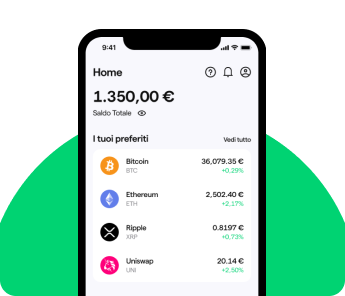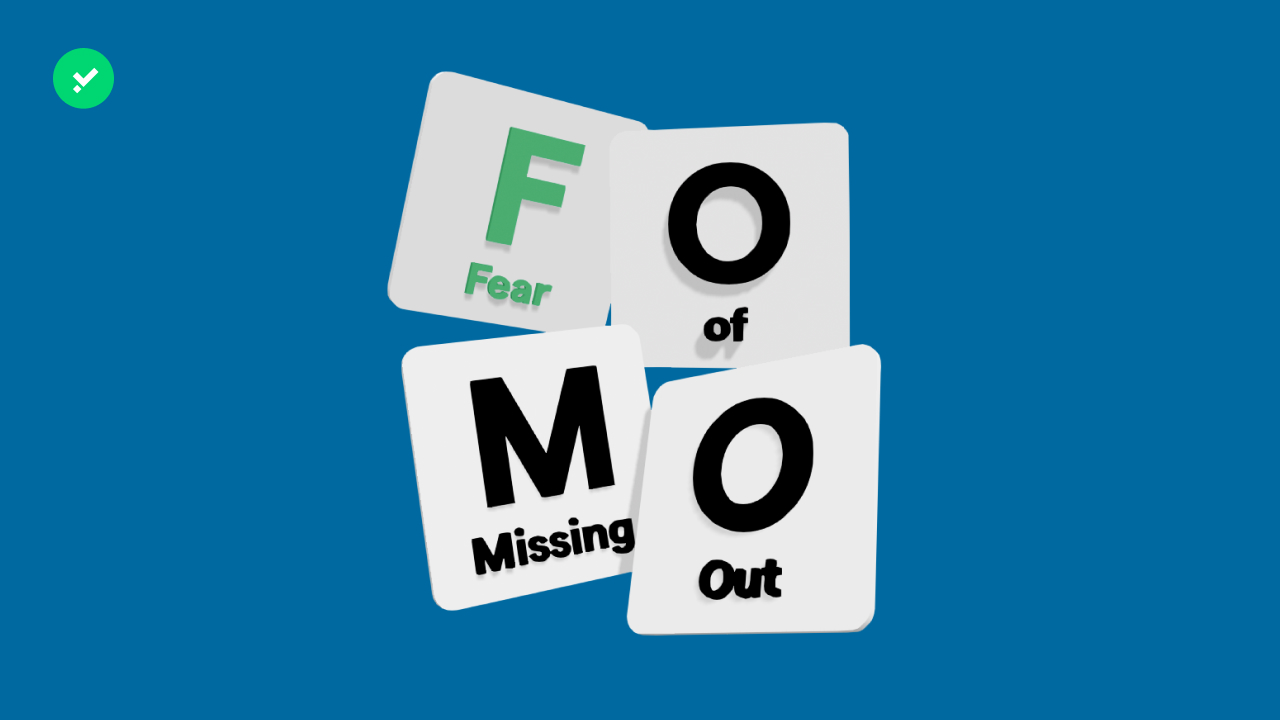“Fear Of Missing Out” is one of the most common forms of anxiety of our time. But what does it really mean? Here are some examples from the crypto world
The word FOMO stands for ‘Fear Of Missing Out’. FOMO is the feeling of anxiety that you may experience when you fear that you have missed out on something important. It could be an event, an opportunity or a conversation. With the arrival of social networks, this fear has become more widespead although it has always characterised human behaviour. In other words, FOMO is the constant feeling of being excluded from experiences that everyone else but us is experiencing. The term has also become very popular in the context of trading and cryptocurrencies. In this context, it could involve a fear of missing out on an upward price movement or a potential profit opportunity more generally. In this article, you will find out what FOMO is, its origins and what the term means in the world of crypto!
What is FOMO? Meaning and origins
The term FOMO was created in 2004 by Patrick J. McGinnis, a Harvard Business School scholar, as part of his research on the social behaviour of first-year university students. From 2010 onwards, psychologists have taken up the concept of FOMO to describe a condition found in individuals who are constant users of social networks. These people, who spend a lot of time observing the lives of others, find themselves obsessively comparing their own experiences with those of others. By constantly comparing themselves, they feel like something is lacking, that they are mistaken or lagging behind in certain aspects of life. Psychologists have described this psychological condition as a constant apprehension that others might have experiences from which the person experiencing FOMO was personally excluded.
Is FOMO just social media anxiety?
The ways in which FOMO manifests itself can be different and vary mainly depending on the intensity of the sensation. You may experience it once in a while during a conversation or more continuously, which may turn this feeling into a real pathology. Suffering from this fear on a continuous basis can cause a worsening of mood, feelings of social inferiority, loneliness and anger.
As we stated before, FOMO became particularly popular after the emergence of social networks. This gave birth to a new culture based on influencers but also everyday friends, who share their dream life online. This can lead people to compare themselves and feel inadequate. Måneskin‘s bass player Victoria De Angelis also spoke about this recently. In an interview with Radio Deejay, she said that she suffers from FOMO, and that she can’t stop going out for fear of missing out on an experience. In fact, the fear of being cut off turns into a schedule full of commitments and hectic days spent chasing experiences. Often without feeling truly satisfied anyway!
You may have just come home from a hard day and you can’t wait to settle down on the couch, but you see all your friends on Instagram getting ready for a concert. If FOMO arrives, your only thought is ‘I can’t stay at home while the most important concert of the year is just a few steps away from me’. You get ready and go out. When the concert is over, the feeling comes back: ‘maybe I could follow my friends to that club and have a drink instead of going to sleep’. In the mildest cases, people in this situation just crawl into bed with some discomfort. For others, the thoughts become obsessive and limiting.
FOMO in the crypto world
In the crypto world and in trading, the meaning of FOMO remains the same. However it applies to missed profit opportunities rather than experiences. People get convinced that they have forever missed the chance to buy the next crypto that will explode. Everyone but themselves is guaranteed stratospheric gains. The venture into the crypto world of a person suffering from crypto FOMO is conditioned by thoughts like “why did I sell at that price?”, “I should have bought more” or “I absolutely cannot miss out this token’s presale”. This psychological condition usually affects those who have recently got interested in the market and who therefore do not have enough experience to know and control their anxiety. These users often buy and sell impulsively for fear of losing a potential profit opportunity.
Those who get caught up in FOMO when approaching the crypto world are engaging in outright fear, and emotions can hinder the pursuit of a rational strategy. Behavioural finance explains how rash actions, triggered by emotional aspects, can negatively affect the achievement of your goals.
Examples of FOMO with cryptocurrencies
To better explain what FOMO is in the context of crypto, we can use some practical examples. The term is for instance particularly appropriate in the case of new crypto launches. These launches always come together with presales that allow those who participate in them to financially support a crypto project before the official launch by purchasing the native cryptocurrencies. One feature of presales is that they have limited access. Only the quickest users to purchase can actually participate in the launch. This aspect generates crypto FOMO in those who want to participate and fear being excluded.
Dogecoin’s bullish movements linked to Elon Musk‘s tweets can also explain crypto FOMO. Every time Musk posts a DOGE-themed tweet, the price of the crypto goes up thanks to so-called FOMO buyers. These people decide to buy DOGE in fear of missing out on the price rise.
The JOMO (Joy of Missing Out)
The opposite psychological phenomenon is JOMO ‘Joy of Missing Out’. JOMO can be defined as the pleasure of enjoying your interests and passions without worrying about the fact that other individuals are pursuing more satisfying activities.
Instead of despairing over untapped crypto opportunities, those who live in the name of crypto JOMO simply disregard them. In fact, the term JOMO is usually used by no-coiners, those who do not hold crypto. While those in the throes of FOMO feel the need to spend hours and hours in front of charts looking for the next opportunity, the JOMO team doesn’t even bother to give it any thought.
Now that you know what FOMO means and how it differs from JOMO, you might ask yourself: which of the two is the best attitude for experiencing the world of crypto? Probably neither, both FOMO and JOMO are extremes. On the one hand we have a tendency to get too emotionally involved, on the other hand we have a tendency to avoid situations completely. Knowing the latest trends and cryptos on the upside, in short ‘being on your toes’ about all the industry news is certainly not a bad thing. So is learning to be more detached like JOMO fans.



